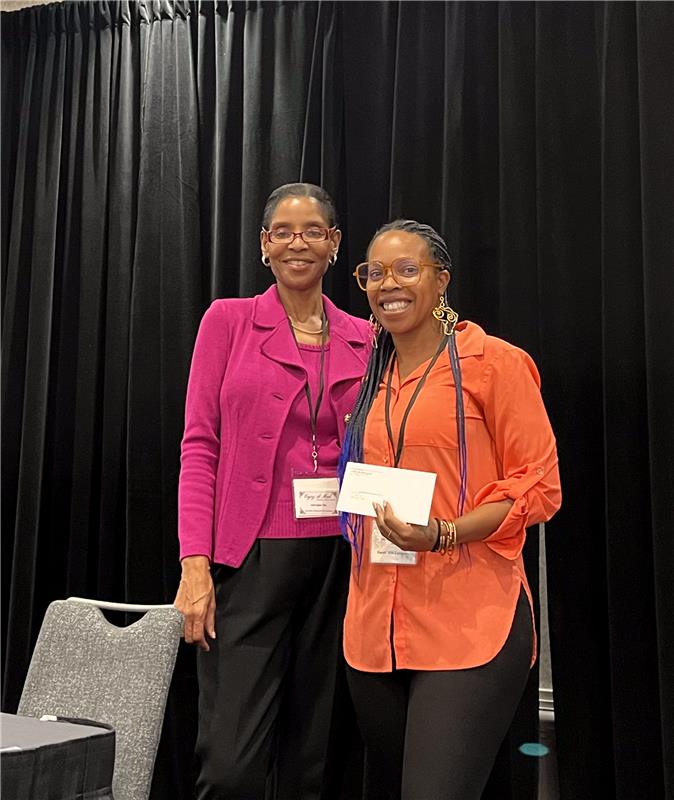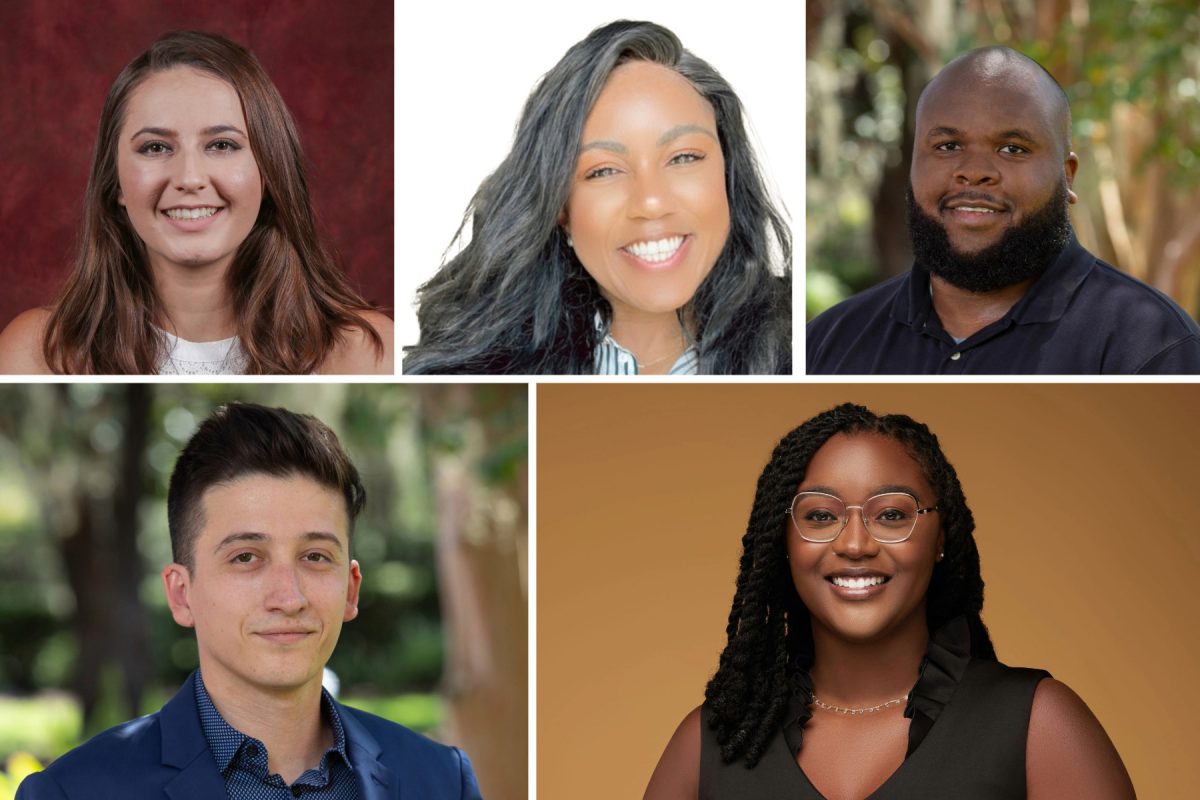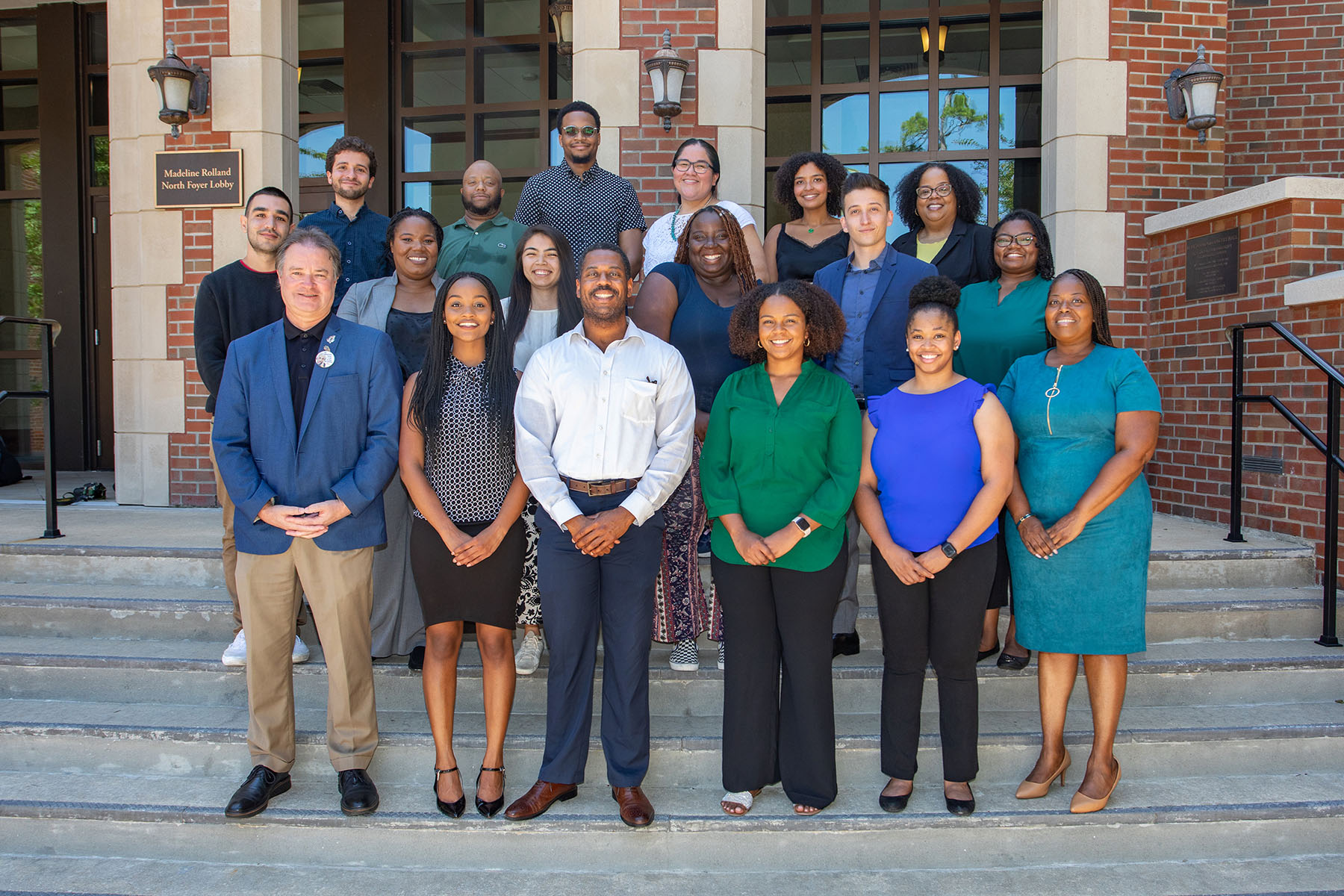
In February, 24 Florida State University graduate students were celebrated for receiving the McKnight Doctoral or Dissertation Fellowship at the 38th Annual McKnight Fellows Meeting and Research & Writing Conference in Tampa.
At the conference, several FSU McKnight Fellows served as presenters, moderators and panel discussants. Seven recently graduated FSU McKnight Fellows were honored by receiving ceremonial jackets, a McKnight Fellows tradition.
FSU education doctoral student Camille Lewis received the Russell V. Ewald Award for Academic Excellence and Outstanding Service to the Community. Additionally, FSU Associate Professor Bryan Quaife received the William R. Jones Most Valuable Mentor Award for the mentorship he provided to graduate student Jhamieka Greenwood, a McKnight Doctoral Fellow in computational science.
The McKnight Doctoral and Dissertation Fellowships, made possible by the Florida Education Fund, aim to combat the underrepresentation of African American and Hispanic faculty at colleges and universities in Florida and throughout the country.
“Diversity in lived experiences and perspective, knowledge and expertise are critical in shaping the future of higher education.”
— Adrienne Stephenson, associate dean of The Graduate School and Director of the Office of Graduate Fellowships and Awards
“This year’s cohort reflects the longstanding commitment of the Florida Education Fund and Florida State University to diversify higher education by recruiting and developing scholars pursuing Ph.D. degrees who have been traditionally underrepresented in academia,” said Adrienne Stephenson, associate dean of The Graduate School and Director of the Office of Graduate Fellowships and Awards. “Diversity in lived experiences and perspective, knowledge and expertise are critical in shaping the future of higher education.”
The Doctoral Fellowship provides $17,000 per year in tuition, fees and stipends for up to five years. The Dissertation Fellowship Program provides up to one year of support to individuals working to complete dissertations with a stipend of up to $12,000.
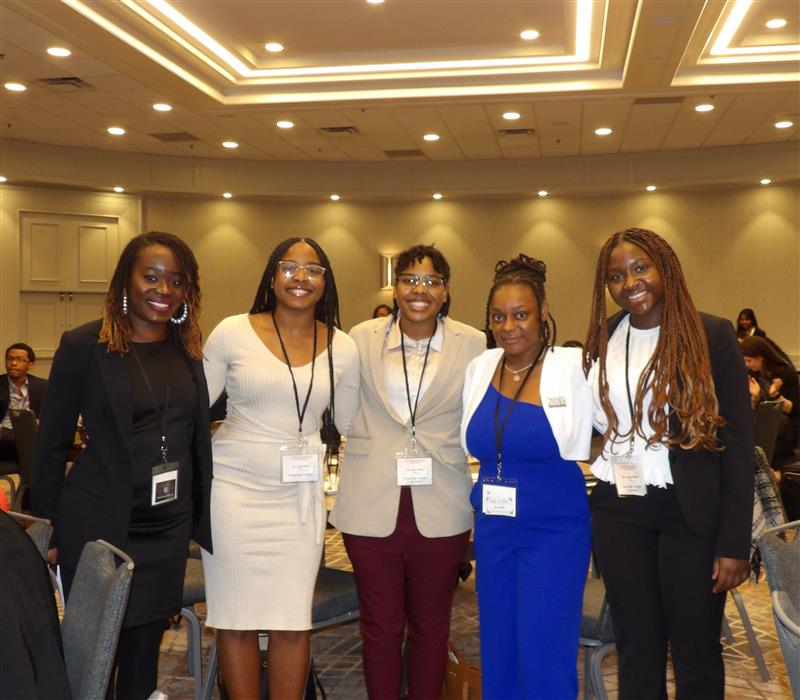
This is Florida State University’s largest cohort of McKnight Doctoral Fellows to date, with 19 new doctoral students receiving funding.
“The continued success of the McKnight Fellowship Program here at FSU relies heavily on the efforts and support of the amazing faculty who mentor our fellows,” Stephenson said. “Their efforts to promote teaching, research and learning do not go unnoticed.”
Since its inception in 1984, the McKnight Doctoral Fellowship Program has graduated 1023 doctoral degrees from nine participating universities in Florida. FSU students have been awarded 322 of the coveted fellowships to date, with 51 fellows currently matriculating.
Five students were awarded the McKnight Dissertation Fellowship for the 2023-2024 academic year:
Taylor Darks — College of Social Sciences and Public Policy; Sociology
Darks is researching reparations in Evanston, Illinois, that address decades of segregation and legalized housing discrimination. Her goal is to give a unique perspective on what local reparations initiatives look like, how they are passed, what it means for residents and what it means for the national conversation.
Clemente (CJ) Guzman — College of Arts and Sciences; Physics, Condensed Matter
Guzman works at the National High Magnetic Field Laboratory studying the dynamics of quantum spin. He utilizes his previous undergraduate experience in chemistry to help him advance his research in condensed matter science.
Kiana Hines — College of Communication and Information; Communication Science and Disorders
Hines’ research focuses on supporting language, reading and writing development in multilingual learners with developmental language disorders or intellectual disabilities. By giving a voice to these underrepresented learning populations, she hopes that these interventions will be implemented by both monolingual and multilingual speech-language pathologists.
Meaghan Navarrete Mathews — College of Medicine; Neuroscience
Navarrete Mathews is interested in exploring how scientists and physicians classify and diagnose mental disorders and how this impacts society’s and individuals’ understanding of their mental health. After completing her studies, her goal is to run her own lab and train scientists.
Darius Robinson — College of Education, Health, and Human Sciences; Higher Education
Robinson focuses on the convergence of leadership education and development with underrepresented students, specifically with a focus on Black students. His goal is to create a bridge between communities to help people become caring and understanding. Currently, Robinson is working on a dissertation topic that examines how Black male student leaders transform critical hope into action to advocate for the communities they support.
19 students were awarded the McKnight Doctoral Fellowship for the 2023-2024 academic year:
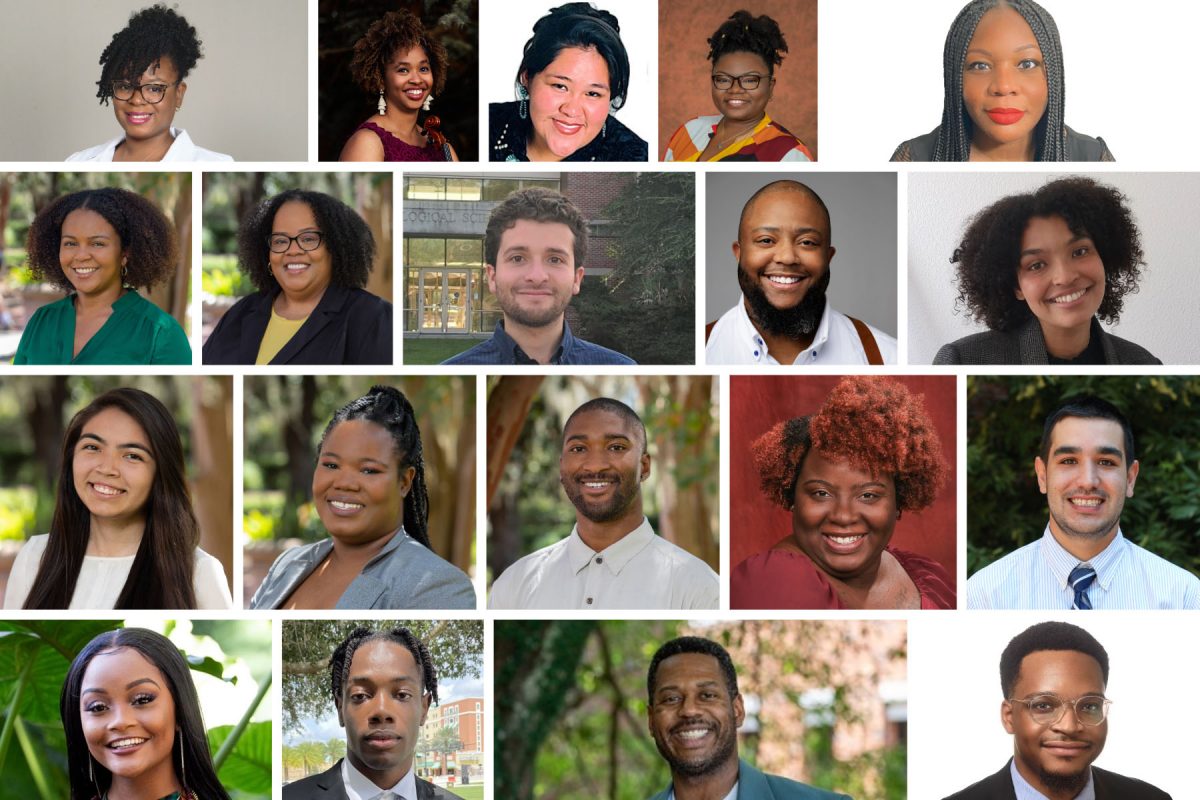
Tacey Atsitty — College of Arts and Sciences; Creative Writing
Atsitty is a Ph.D. candidate researching and writing about Navajo monsters and the narratives about them. Through research, her hope is to make society accountable for the monsters created in stories.
Michael Burrage — College of Business; Marketing
Aspiring to pursue a Ph.D. in marketing, Burrage hopes to help companies use technology more effectively to engage consumers. Currently, his research analyzes consumer behavior and innovation, specifically examining how consumer attitudes evolve in response to technological advancements.
Jovontae Butts — College of Arts and Sciences; Philosophy
Butts’ research examines the United States’ long history of voter exclusion, even following the passage of the Civil Rights Act of 1964. His current research focus explores strategies used to contact and mobilize all eligible voters, with an emphasis on elusive and disengaged voters.
Michael Davidson — College of Education, Health, and Human Sciences; Counseling Psychology and School Psychology
Davidson is a first-year doctoral student whose research analyzes the vulnerabilities exacerbated by discrimination, specifically the resilience factors, career developments, microaggressions and microaffirmations experienced by BIPOC LGBTQ+ people.
Nella Delva — College of Medicine; Biomedical Sciences, Neuroscience
Delva’s research investigates new potential treatments for individuals with major depressive disorder, specifically developing new pharmacotherapy with a focus on the important roles of dopaminergic neurons.
Inge Guerrero — College of Arts and Sciences; Neuroscience
Guerrero is part of the neuroscience program in the psychology department, and her research focuses on the reward system, anxiety and eating behavior. Her goal is to help better understand conditions such as binge eating and how to best treat these conditions.
Daniel Gutierrez — College of Arts and Sciences; Ecology and Evolution
Gutierrez’s research focuses primarily on the evolution of tropical lekking birds and how their behavior is shaped by genetic and social mechanisms. His hope is that by understanding the ecology of animals, researchers can understand their roles in the ecosystem.
Zenzeale Hudson — College of Medicine; Biomedical Sciences
Hudson is currently in the College of Medicine in the Biomedical Sciences Ph.D. program researching early breast cancer detection. As a first-generation student and African American woman, her goal is to bridge gaps in health care access and outcomes.
Nath-Eddy Moody — College of Arts and Sciences; Chemistry, Organic/Materials
Moody’s research involves utilizing biomass-derived polymers to generate polymers not dependent on petrochemical feedstocks, which has important implications for the plastics industry. He helps explore the many avenues this polymer opens up that can give access to a diverse set of properties not yet seen in a biomass-derived plastic.
Shelby McCrackin — College of Education, Health, and Human Sciences; Curriculum and Instruction, Mathematics Education
As a high school math teacher, McCrackin wanted to learn more about effective teaching practices and interventions for secondary mathematics education. She specializes in research around branches of Algebra I such as policy, content, curriculum and classroom dynamics.
Roxanne Oluwalowo — College of Communication and Information; Information
Oluwalowo’s research focuses on using AI to improve health care practices. Through the integration of data mining, data analysis and prediction models, she aims to create technologies that reward the patient’s good health behaviors, improve health outcomes, aid the physician with generating individualized recommendations for each patient and reduce errors often found in patient files.
Kadesha Reynolds — College of Arts and Sciences; Applied and Computational Mathematics
As a math tutor of more than nine years, Reynolds’ students motivated her to further her knowledge and explore applied mathematics. She hopes her research benefits society by creating more financial opportunities for impoverished communities and decreasing pollution created by manufacturing.
Sabrina Shade — College of Arts and Sciences; History
Shade’s targeted research explores the intersectional histories of African Americans and Indigenous communities in early America, focusing on the laws, norms and policies that impacted the evolution of servitude in early America. Her long-term goal is to develop a research group that will assist local communities with lost histories while recruiting minorities to the field of public history.
Stacey Sharpe — College of Music; Musical Arts
Sharpe’s research sheds light on underrepresented composers within the realm of classical music, specifically Black women for violin. Her research describes the repertoire, impact of the composer’s underrepresentation on the compositions and overall difficulty of the works from a pedagogical perspective.
Tyron Slack — College of Education, Health, and Human Sciences; Counseling Psychology and School Psychology
As a first-generation college student, Slack’s research analyzes the differences in resilience, emotional distress and microaggressions of undergraduate Black students attending a predominantly white institution compared to a historically Black college and university. His research hopes to transform his practical experiences with students and clients in therapy into research for all to use for the greater good.
Cristian Vazquez — College of Arts and Sciences; Psychology
Vazquez loves how psychology has allowed him to combine his interests in statistics and reading research. His research studies how the properties of language can be used to enhance learning and how early literacy instruction can be improved to help struggling readers and minorities learn to read.
Lauren White — College of Education, Health, and Human Sciences; Higher Education
White’s research explores student success and sense of belonging in higher education, Specifically, her research aims to gain a better understanding of Black students’ coping mechanisms for basic needs insecurity and the student success barriers relationship to students’ mental health. This research can be used to develop high-impact practices to provide students with support to create productive environments, leading to higher retention and graduation rates of Black students.
Amanda Williams — College of Education, Health, and Human Sciences; Higher Education
Williams’ research highlights how administrative intervention practices can work toward reducing the socioeconomic gap that affects minority communities and students. This research will have wide implications on how socioeconomic insecurity impacts college readiness, student success and career readiness for African American students.
Oriane Yvin — College of Arts and Sciences; Oceanography
Yvin researches the impact of climate change on Arctic ecosystems, specifically organic carbon cycling and storage in northern permafrost soils. This research focuses on identifying the age, composition and amount of carbon exported from these regions, to understand how climate change is impacting carbon flux and fate in this system.
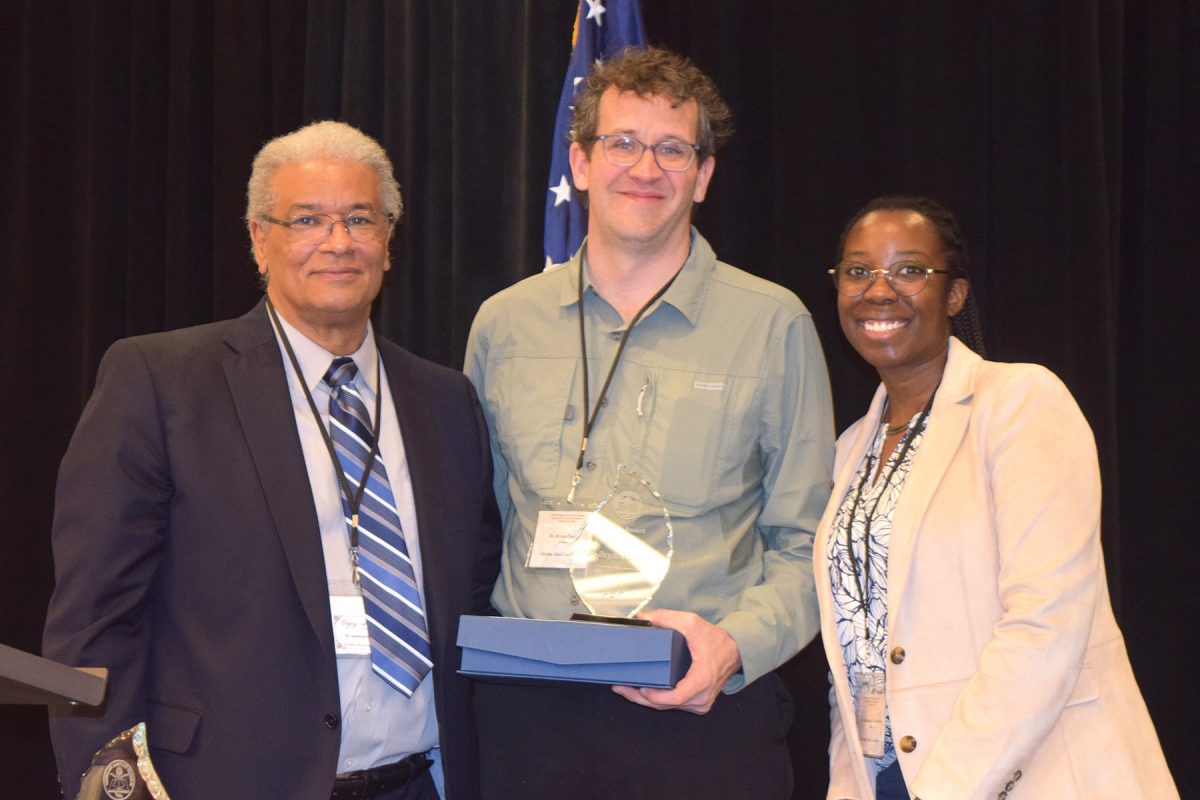
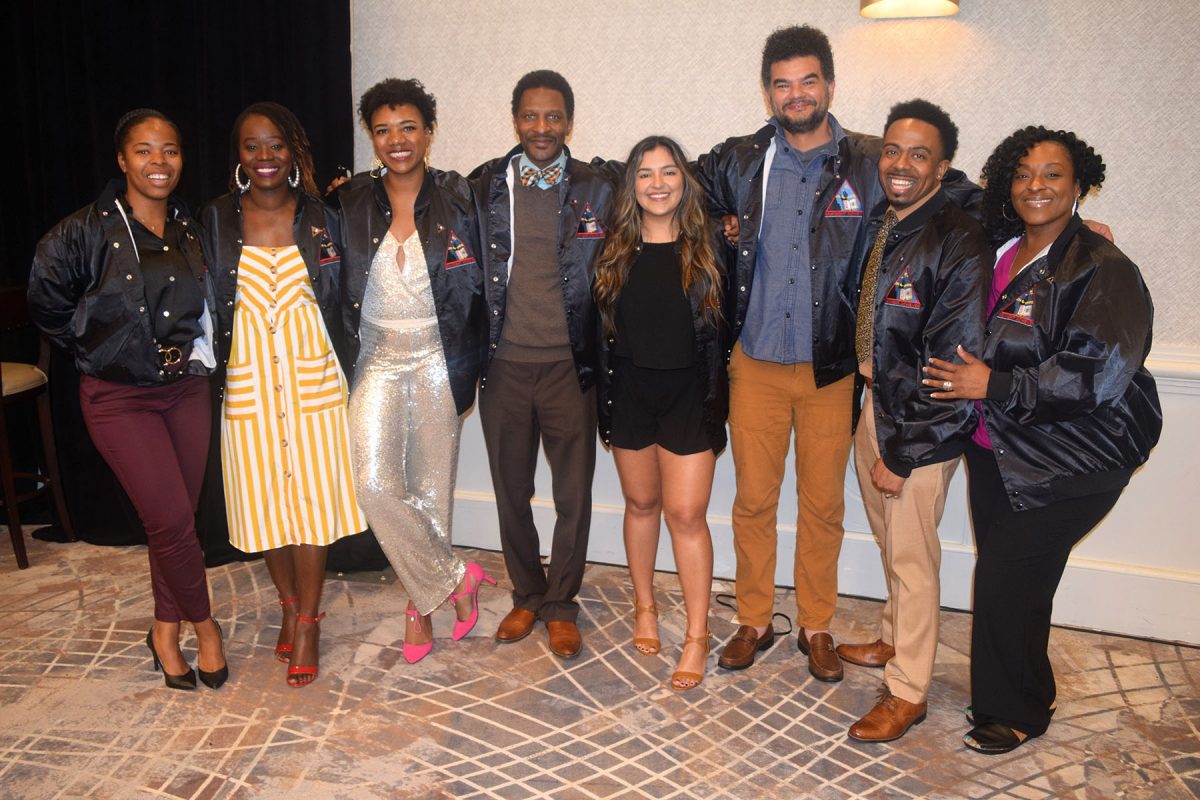
To learn more about ways for graduate students to fund their academic interests, visit FSU’s Office of Graduate Fellowships and Awards at ogfa.fsu.edu.
For more information about the McKnight Doctoral and Dissertation Fellowship programs, visit ogfa.fsu.edu/about-us/mcknight-fellowships.





